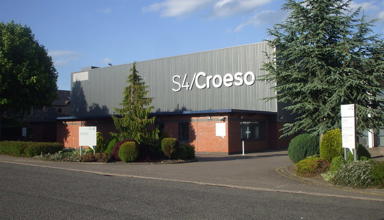Article by Rhys Iorwerth, National Assembly for Wales Research Service
On Wednesday, 13 January 2016, the First Minister will appear before the Assembly’s Communities, Equality and Local Government Committee to answer questions about the Welsh Government’s funding to support the Welsh language. The Welsh Government’s draft budget for 2016-17 was published on 8 December 2015. Funding available to promote the Welsh language is due to decrease from £27.2 million in 2015-16 to £25.6 million in 2016-17 – a reduction of 5.9%, or 7.5% in real terms. In written evidence to the Committee (PDF 611 KB), the First Minister states that the Welsh Government has prioritised funding for “those who need it most”. He stresses that, as a result of the UK Government’s decisions, he has had to “focus resources” on areas where funding will have the “greatest positive impact”. The First Minister also emphasises that the Welsh Government remains “committed to securing the future of the language”. He claims that “funding alone… does not ensure that the language continues to thrive”, and pledges to work with partner organisations to “secure a strong foundation for the language in the future”. In papers submitted to the Assembly’s Finance Committee’s consultation on the draft budget, several organisations have criticised the decrease in funding, claiming it indicates a lack of long-term strategic planning for the Welsh language. Dyfodol i’r Iaith (PDF 340 KB*) points out that the reductions are being made despite cash increases in the Welsh Government’s overall funding. It sees this as evidence that the Welsh language “is less of a priority for the government than it has been previously”. While the Welsh Government states that it has allocated £1.2 million in the draft budget to “cushion the impact of reductions on Welsh language funding”, Cymdeithas yr Iaith (PDF 727 KB*) questions whether or not this £1.2 million will be “considered as part of the baseline next year in relation to the budget for promoting the Welsh language”. According to Dathlu’r Gymraeg (PDF 542 KB*), the reductions could have “an extremely detrimental impact on the work being done to promote the Welsh language and would endanger a large number of jobs”. Mentrau Iaith Cymru (PDF 120 KB*) similarly says that it cannot “understand why the Welsh language budget in general has been cut by so much, given the numerous strategies and various policies that need resources to be realised”. One of those programmes is Bwrw Mlaen/Moving Forward – the Welsh Government’s main strategy to increase the use of the Welsh language (see this blog post for more). The budget line that supports Bwrw Mlaen/Moving Forward will reduce from £5.3 million to £3.9 million in 2016-17 – a decrease of 25.6%. The funding reductions also apply to the Welsh Language Commissioner’s office. In December 2015, the Commissioner told the Communities, Equality and Local Government Committee that a further decrease to her budget would be “disastrous”. In line with other commissioners, her office will face a 10% funding reduction in 2016-17 – this on the back of an 8% decrease in 2015-16 and a 10% decrease in 2014-15. The First Minister has pledged to mitigate (PDF 576 KB*) the reduction with £150,000 of additional funding in this financial year. The proposed reductions to the Welsh language budget coincide with concerns about the planned 10.6% decrease to the Welsh Books Council’s funding (PDF 254 KB), uncertainty about the Coleg Cymraeg Cenedlaethol’s budget, as well as the UK Government’s recent decision to reduce S4C’s funding. Taken together, Dyfodol i’r Iaith suggests the reductions could “unravel much of the fabric that maintains Welsh as a thriving and living language”. The Communities, Equality and Local Government Committee meeting will give Assembly Members an opportunity to discuss these issues with the First Minister. * These papers have been submitted to the Finance Committee in Welsh only. Quotes therefore are translations provided by the National Assembly for Wales




